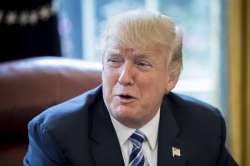The US mid-term elections ended today with electorates voting to decide the fate of all 435 seats of the House of Representatives (lower house, or chamber) and 35 of the 100 seats in the Senate (upper chamber). Besides these, 36 governorship and over 6,000 state legislative seats are also up for grabs.
The entire House of Representatives goes to elections every even-numbered year, at the end of its two-year term. Elections to the US Senate, on the other hand, are staggered — as are elections in India’s Rajya Sabha. US Senators have six-year terms, with about one-third of the 100 seats going to polls every two years.
Nearly a dozen Indian-Americans, some of them part of the so-called 'Samosa Caucus', have emerged as strong contenders for Tuesday's high-profile US midterm polls taking place at a time when the anti-immigrant sentiment is at its peak in the country.
The emergence of a large number of young Indian-Americans reflects the growing desire of this small ethnic community comprising just one per cent of the US population of 32.57 crores.
The Democrats are hopeful about taking over the House of Representatives, in which they currently hold 195 seats to the Republicans’ majority of 240. They need to gain 23 seats to reach the majority mark of 218.
On the other hand, American analysts feel the Republicans are in a good position to strengthen their grip on the Senate, where they currently hold a thin majority — 51 of the 100 seats.
Out of the 35 Senate seats going to polls, 9 are being vacated by Republicans, 24 by Democrats and two by independents who usually vote with the Democrats in matters of the legislature. This means that in the Senate, the Democrats stand to lose more than the Republicans.
If the Republicans control one chamber and the Democrats the other, legislation will likely not move.
Besides, there are at least two more ways in which a split legislature can impact politics. For one thing, it would give Democrats the muscle to call for investigations against various scandals that are surrounding the President, and possibly to move for impeachment.
Again, if Democrats take hold of the Senate, it would constrain President Trump’s powers in getting his nominees confirmed, including judicial ones.
More than the alleged Russian interference in the 2016 polls, immigration and domestic issues seem to be dominating the discourse so far.
Latest World News

